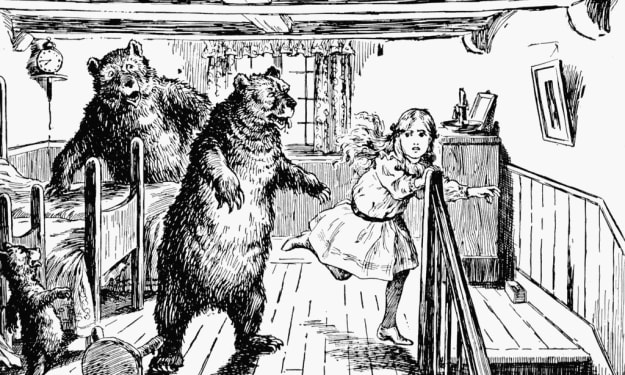New Research Indicates Nearly Inevitable Sea Level Rise in the Next Century
The West Antarctic ice sheet is set to melt, even if we hit the UN Emission Reduction Target, serving as a warning for the coming centuries.

It’s too late to save the West Antarctic ice shelf from melting, according to new research published on October 23, 2023. The study, published by Kaitlin A. Naughten, Paul R. Holland & Jan De Rydt, paints a concerning picture of the next hundred years.
Discover below how the scientists involved made this new revelation, what it means for us, and why this landmark report should be a stark warning and cause for change.
How Scientists Were Able to Predict Sea Level Rise and West Antarctic Ice Shelf Melting
To gain a better understanding of the future state of our oceans, specifically the Amundsen Sea region of the ocean, the researchers turned to computer modeling. The group configured models together (including the MITgcm and CESM1 models) with an ice sheet model, which has yet to be considered in these sorts of prediction-making experiments thus far. The researchers considered this addition a bias correction, providing a more accurate representation of what can be expected in the next selection of decades. By adding this new variable to the simulation, they were better able to approximate reality.
Then, once they established this new simulation model, they compared the resulting climates based on different projected emission scenarios — including business-as-usual emissions and ambitious targets of emission productions suggested by the UN. What they found was that, no matter which scenario, the ice sheet in question melted.
According to the article, these results “suggest that mitigation of greenhouse gases now has limited power to prevent ocean warming that could lead to the collapse of the West Antarctic Ice Sheet”.
The authors of the article hail from Cambridge and Northumbria University, both located within the United Kingdom. The principal writer, Dr. Kaitlin A. Naughten, is “an ocean modeller specialising in ice shelf, ocean, and sea ice interactions around Antarctica” with many years of experience in the field.
What the West Antarctic Ice Shelf Melting Event Means for Us
This ice sheet alone could contribute to 10 feet of sea level rise over the next couple of hundreds of years. It’s important to note here that this single glacier isn’t the only one contributing to sea level rise, however, this is but one big piece of melting ice in what is literally a sea of huge chunks of melting ice. The study being reported all over the web right now only covered the Amundsen Sea, meaning that application of these methods to other regions may yield similar results with more concerning metrics.
This revelation is consequential because previous conservative estimates believed that the sea level would rise to only 2 feet by the end of the century. This ice shelf alone will have a huge impact on sea level rise, which makes one wonder how many others like it may contribute more to sea level rise than we previously thought was possible.
According to Evan Bush, writer for NBC News, “Without adaptation, 10 feet of sea level rise would likely submerge much of Miami and South Florida, make Baton Rouge, Louisiana, oceanfront property and inundate the Brooklyn neighborhood of Red Hook in New York City”. These are but 3 examples. If you’re interested in seeing what more locations around the world will look like, Climate Central has an online tool that will serve you well. You can see the Coastal Risk Screening Tool Here.
So, how will this affect us? Essentially, parts of our coastal cities will be overtaken by the ocean, displacing many, and costing cities and governments more money than one can shake a stick at. Those directly affected, who live close enough to the coast to already see the shores sneaking closer to their homes, will eventually be displaced, losing their homes and, depending on their scenario, their livelihoods, too. These folks will become climate change refugees unless our governing bodies around the world find a way to help them.
We can adapt to these known effects, but it’s going to be costly. People who must move will need support, cities will need to build better fortifications, and governments will need to afford to buy back houses to prevent hazardous situations for their citizens.
It’s important to understand here that 3 billion people live within 200 kilometers of a coastline. Nearly half the population will begin to notice or directly experience the effects of rising sea levels in the decades to come. This change won’t just affect a small proportion of coastal folks, it will become an incremental part of the human experience.
Why the West Antarctic Ice Shelf Should Be a Warning For All of Us
Because of this scientific revelation, and other similar predictions made in recent years, scientists are no longer discussing prevention, the discussion now centers around mitigation of the expected effects. It’s not a question of “if” like it was when scientists began raising their voices, but of “when” and “how drastic”. People will be displaced, structures will be lost, and climate change will be costly. But we can still affect the magnitude of all of these by our actions today.
It’s too late to prevent sea level rise from not occurring due to the melting of the Thwaites and other West Antarctic ice masses, but this is but one region of Antarctica. This study and the revelations that will occur in the near future need to serve as a warning that we actually heed because, if we make the right changes now, we can manage to decrease the amount of suffering for generations after us. We need to be alert and act efficiently and decisively to overcome this encroaching issue.
Oftentimes, news like this leads to climate despair, which leads to resignation and inaction. But, right now, we are nearing a tipping point that has the potential to result in a much worse situation than what this paper predicts. Inaction will pave the road to a climate hell faster. There is still a wide variety of climate change effects we can work towards mitigating and — yes — even still preventing.
Just because this region’s melting is inevitable, that doesn’t mean that we shouldn’t continue to try and make a difference. By culling the amount of greenhouse gas production, we can slow down the process, giving people enough time to adapt to inevitable changes. We can avert our attention to the funding and creation of technological innovations, too, to help combat effects and to create alternatives that are better for our planet.
Don’t let this loss kill your motivation to make a difference. The melting of this ice shelf is a lost battle, but the war to protect our planet and its inhabitants rages on. It’s more important now than ever to care — when the warnings of impending climate change effects are still survivable, and more a costly inconvenience than an apocalyptic one. Making positive changes, choices, and votes to improve your city’s, state’s, or country’s impact on the earth can help us repair and prevent additional damage. Let this tipping point on melting glaciers be your own personal tipping point to give a damn.
--
The melting of some of our icebergs is inevitable, and this landmark study is one of the best signifiers of that we have to date. This new application of computer modeling paints a stark future, but it doesn’t yet paint the picture of some dystopian apocalypse scenario.
Recognizing this situation in advance, as the scientists of this study did, allows us to have ample time to prepare, adapt, and work toward mitigation. Now that we have the chance to make a prediction and adjust our actions, we must not waste the opportunity.
About the Creator
Olivia L. Dobbs
Science Enthusiast, Naturalist, Dreamer, Nerd.
I crosspost my Medium articles here :)
You can find my main account on Medium: https://medium.com/@oliviadobbs13
Check out my science! -> bit.ly/DobbsEtAl
Reader insights
Outstanding
Excellent work. Looking forward to reading more!
Top insights
Compelling and original writing
Creative use of language & vocab
Easy to read and follow
Well-structured & engaging content
On-point and relevant
Writing reflected the title & theme






Comments
There are no comments for this story
Be the first to respond and start the conversation.